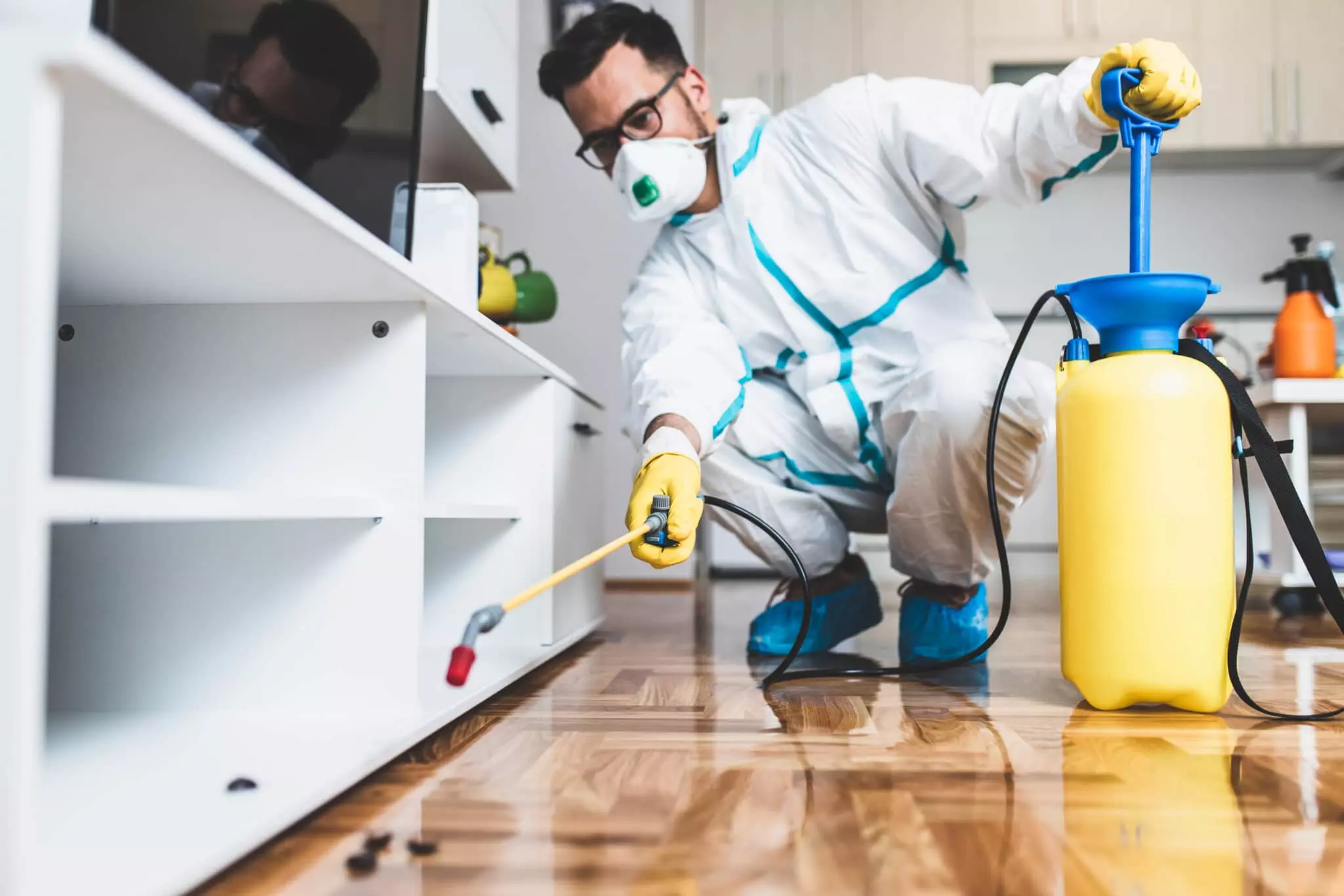Exploring Ingenious Methods and Products for Efficient Parasite Control
The landscape of parasite control is developing, noted by the appearance of innovative techniques and items made to improve performance and sustainability. From wise catches geared up with advanced surveillance systems to organic methods that use all-natural killers, these improvements present a standard shift in how we come close to pest administration.
Smart Traps and Checking Equipments
How can contemporary technology improve parasite management? One substantial improvement is the development of clever traps and keeping an eye on systems, which offer real-time data and analytics for efficient insect control. These systems use sensing units and cordless technology to detect parasite task, alerting home supervisors and insect control professionals to infestations before they rise.
Smart traps are outfitted with attributes such as bait stations that attract pests and capture them successfully. These traps can be checked from another location, enabling timely treatments and decreasing the requirement for comprehensive chemical applications. The combination of device knowing formulas makes it possible for these systems to distinguish between target insects and non-target varieties, enhancing the precision of insect control actions.
In addition, the information accumulated from smart traps can be analyzed to identify patterns in pest habits and environmental variables adding to problems (Pest Control in Port Charlotte). This information is very useful for developing targeted pest monitoring techniques tailored to certain settings. By embracing smart catches and monitoring systems, insect control specialists can improve their operational efficiency and decrease the ecological impact of pest monitoring, eventually bring about much safer and much more sustainable practices in the industry
Biological Insect Control Methods
Utilizing all-natural predators and parasites, organic parasite control techniques supply an eco-friendly choice to chemical therapies. This method entails the intro or enhancement of specific organisms that can naturally regulate insect populations, consequently decreasing dependence on artificial chemicals. Common instances include using ladybugs to control aphid invasions and parasitic wasps to target caterpillars.

Biological control can be classified into 3 main strategies: timeless, augmentative, and conservation. Timeless organic control includes importing natural enemies from the pest's indigenous environment, while augmentative control includes increasing the populace of existing all-natural adversaries with launches. Conservation methods concentrate on producing conditions that support these helpful microorganisms in the community.
The efficiency of biological pest control depends upon understanding the intricate interactions within communities. It usually calls for a thorough analysis of parasite dynamics and the life process of both the parasites and their all-natural adversaries. While biological techniques may not supply instant results like chemical choices, they contribute to long-term parasite administration and environment wellness. As recognition of ecological concerns expands, organic bug control approaches are significantly identified for their lasting duty in incorporated insect monitoring programs.
Eco-Friendly Chemical Alternatives
Environment-friendly chemical alternatives supply a viable remedy for parasite administration that minimizes environmental impact while properly controlling parasite navigate to this site populaces. These options are stemmed from all-natural sources and are meticulously created to target certain parasites without harming helpful organisms, making them an essential part of lasting insect control methods.
Amongst the most effective environment-friendly alternatives are plant-based insecticides, such as neem oil and pyrethrin, which are originated from the seeds and blossoms of numerous plants. These substances interfere with the life cycles of parasites, lowering their populaces without the harmful effects related to standard pesticides - Pest Control in Port Charlotte. In addition, important oils like peppermint and clove oil exhibit repellent homes, further improving their energy in parasite administration

Moreover, eco-friendly chemical choices usually break down a lot more swiftly in the atmosphere, minimizing the danger of dirt and water contamination. This characteristic aligns with the raising customer need for sustainable techniques in farming and urban parasite control. As research remains to breakthrough, the growth of ingenious green formulations will further enhance efficiency and broaden application areas, making it possible for pest management experts to take on greener, extra responsible approaches in their methods while safeguarding human health and wellness and the setting.
Scent Interruption Methods
An additional ingenious method in sustainable insect management is making use of pheromone disruption methods. These techniques manipulate the natural chemical signals, or pheromones, that insects use for communication, especially in breeding behaviors. By interrupting these signals, bug populaces can be effectively handled without resorting to dangerous chemicals.
Scent traps are commonly employed in this method. Over time, this can lead to a substantial decrease in parasite populations.

Integrated Insect Management Approaches
Efficient parasite control frequently needs a detailed method, and Integrated Parasite Management (IPM) techniques supply a framework for accomplishing this goal. IPM integrates numerous monitoring practices to minimize pest populaces while lowering dependence on chemical pesticides. This multifaceted method starts with extensive surveillance and recognition of parasites, enabling for my sources targeted interventions based on particular parasite stress.
Social methods, such as plant turning and internet sanitation, play an essential duty in stopping parasite establishment. Biological controls, including natural predators and parasitoids, are utilized to maintain pest populaces at workable degrees. When essential, discerning chemical treatments are applied, emphasizing lower toxicity to non-target varieties and the atmosphere.
By utilizing this all natural technique, IPM not just enhances insect control performance however also adds to lasting eco-friendly equilibrium. Ultimately, Integrated Pest Management stands for a forward-thinking option that straightens agricultural efficiency with environmental stewardship, making it necessary in contemporary insect control techniques.

Final Thought
In conclusion, the assimilation of cutting-edge methods and items for effective insect control stands for a substantial advancement in lasting pest management. Smart traps and checking systems, biological pest control techniques, green chemical options, and pheromone disturbance methods jointly boost the performance of parasite monitoring approaches.